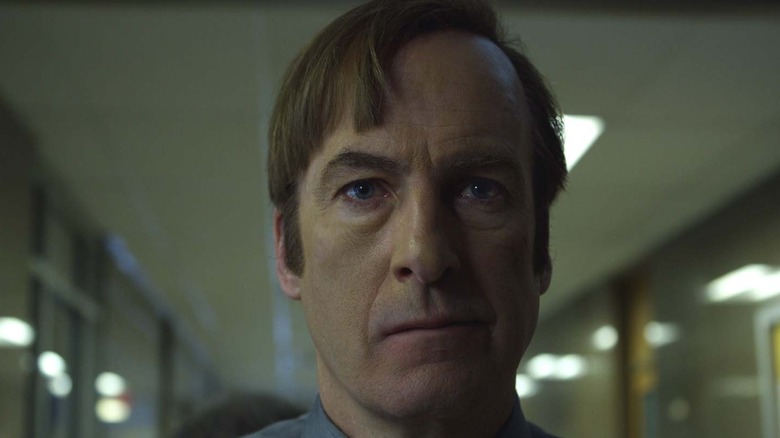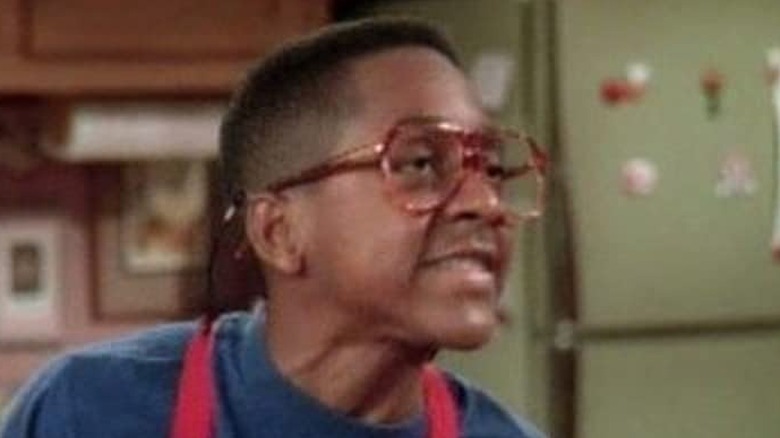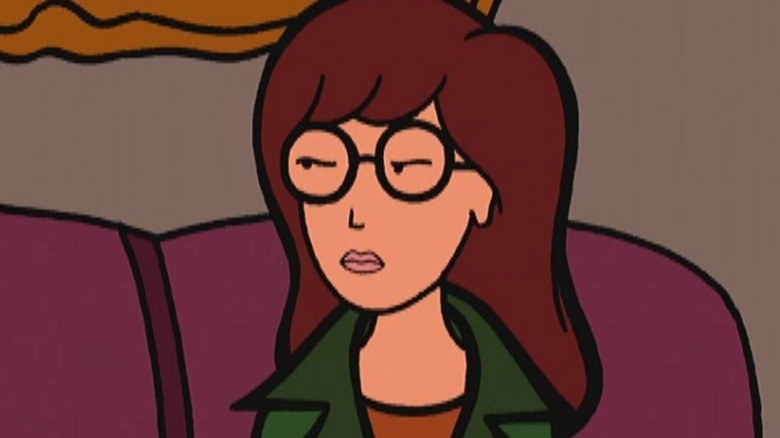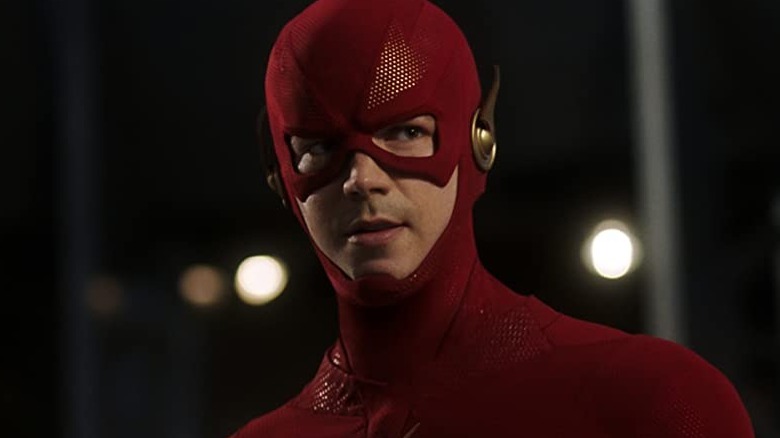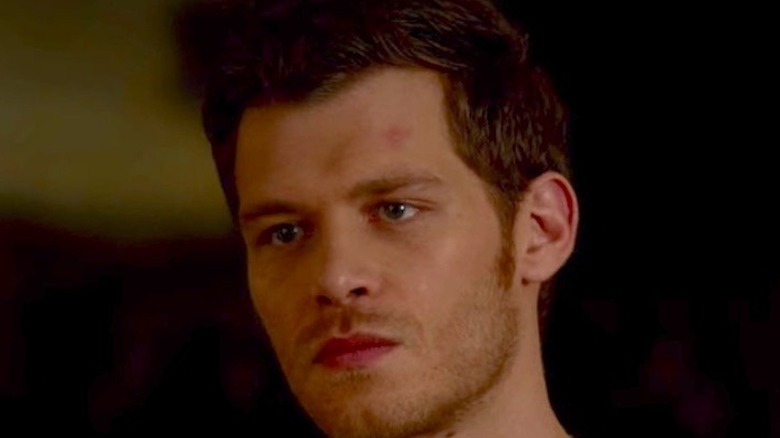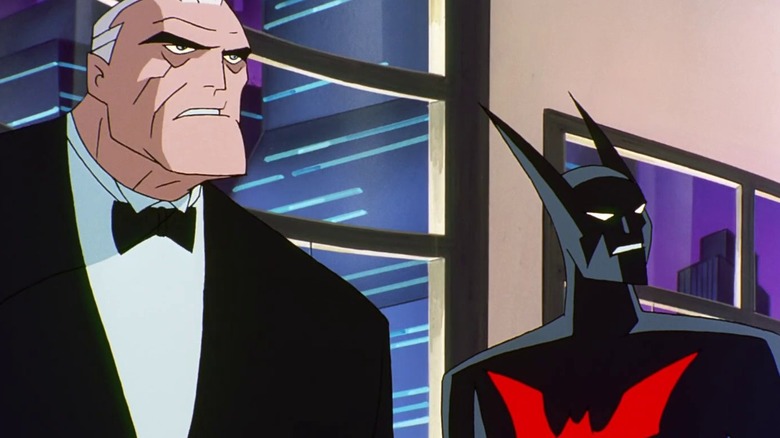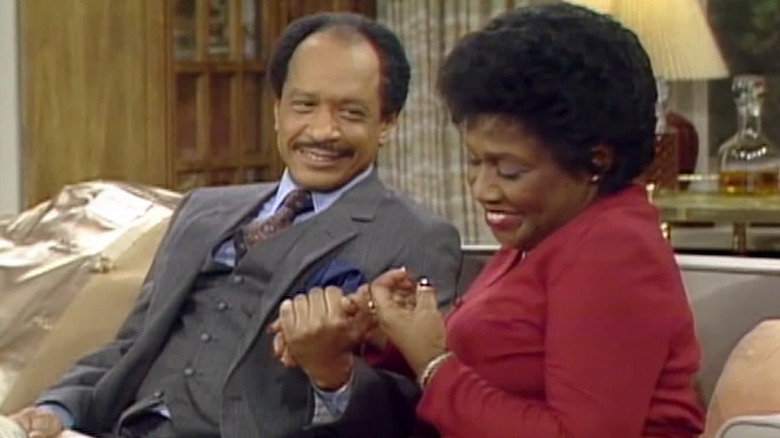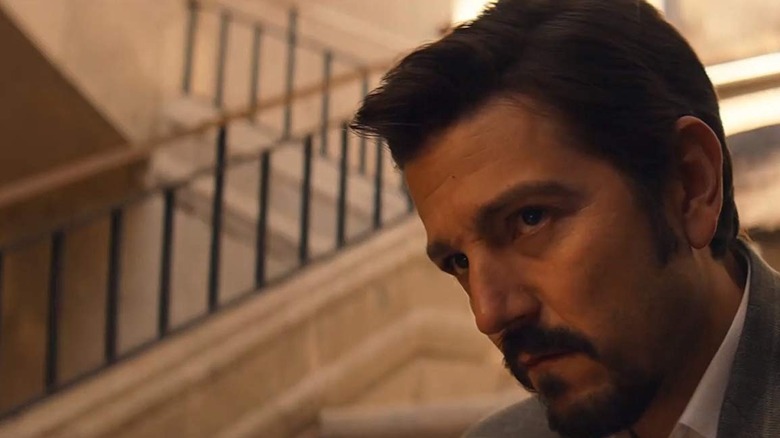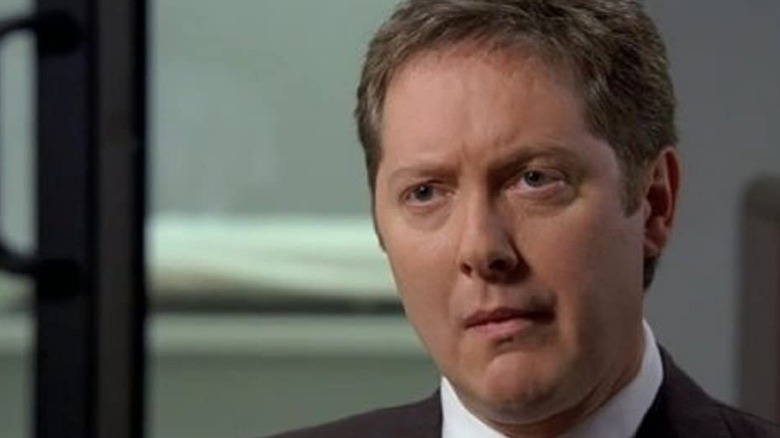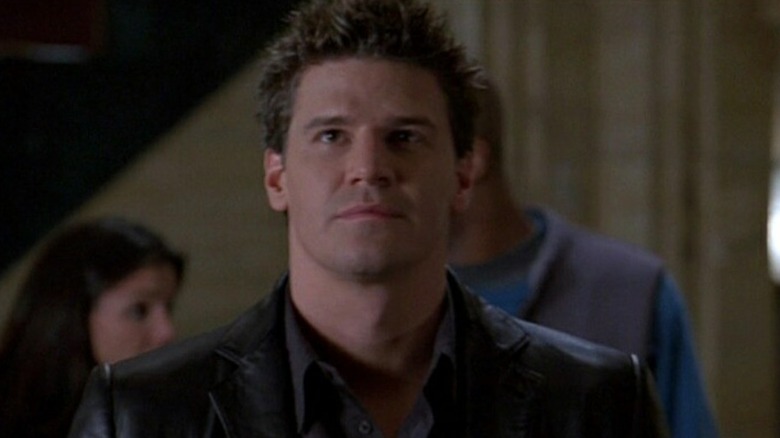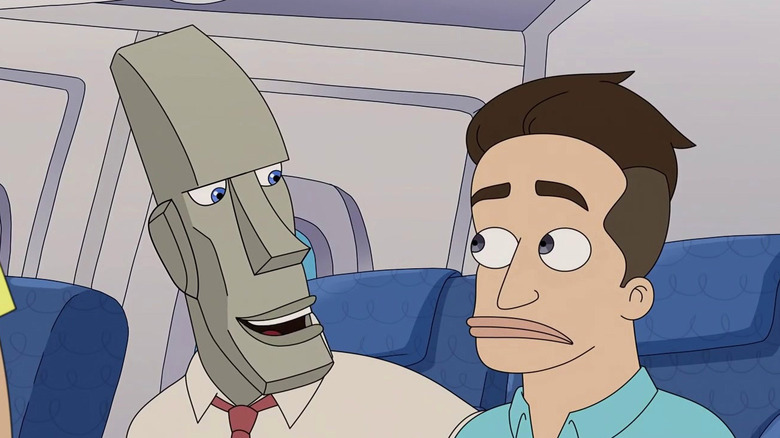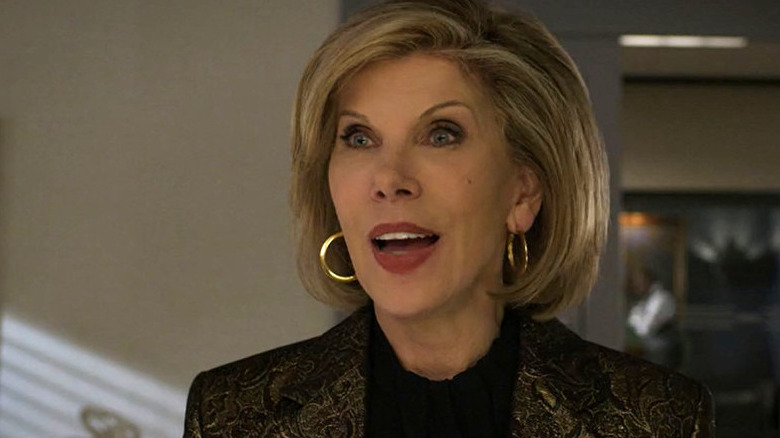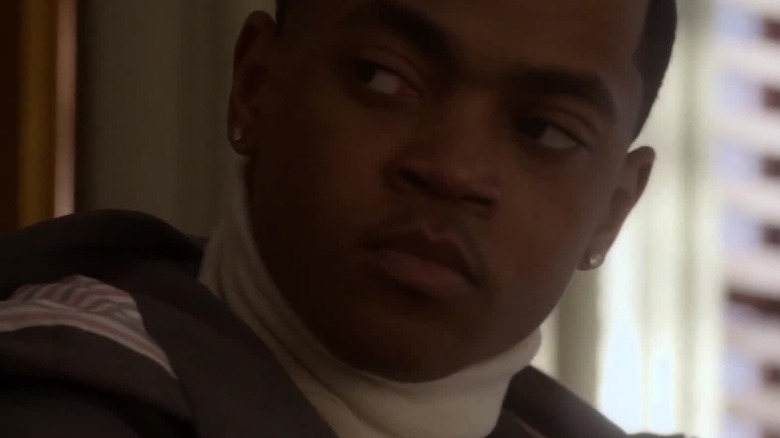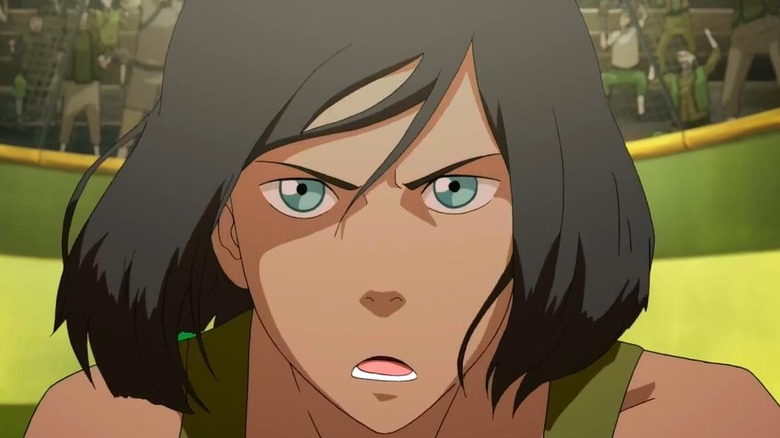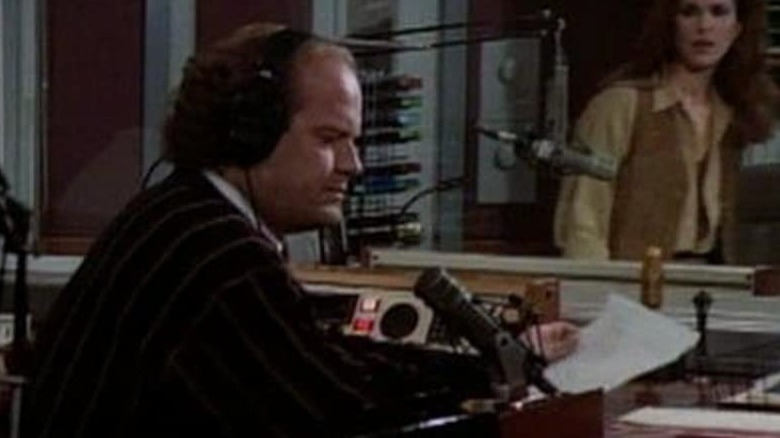14 Great TV Spin-Offs That Are Totally Worth Your Time
One of the easiest ways to alienate TV fans is to announce a new show that is not a totally new idea but rather a remake or, worse, a spin-off. Spin-offs are most frequent in sitcoms, but lately, they've also spread into the realms of dramas, with series such as "The Walking Dead" and "Game of Thrones" attempting to give new perspectives on their pre-established story worlds. Fans are generally sluggish to warm up to them, whether because they miss the true essence of the original show entirely or because there are simply too many of them, making them hard to track and diluting the original series' appeal.
Truth be told, the creators of spin-offs aren't always motivated by the story but rather by the executives' want to create more content with audience familiarity. Judy Berman wrote for TIME bemoaning streamers' creation of a new era of TV she dubbed peak redundancy. She noted that franchises entering the TV space create "too many shows that feel interchangeable." If spin-offs are done poorly, they fall into this category, producing lazy shows that can't match the originals' brilliance.
The good news, however, is that every once in a while, a masterpiece like "Better Call Saul" comes along that matches the original and gives it new life — and even arguably surpasses it. Here are some more fantastic TV spin-offs that are well worth your time.
Family Matters
"Family Matters" introduced viewers to the endearing Winslow family and their eccentric next-door neighbor Steve Urkel (Jaleel White). According to the Los Angeles Times, "Family Matters" was the most popular show in its timeslot during its initial run. But, before all of that, Harriet Winslow (Jo Marie Payton) was only a minor character in "Perfect Strangers," working in the elevator with Larry Appleton (Mark Linn-Baker) and Balki Bartokomous (Bronson Pinchot).
In a reunion for the show, co-creator William Bickley revealed the idea came about because ABC wanted a show about a Black family. The show was initially intended to focus on how a working-class Black family's dynamic evolves while coping with multiple generations living under one roof and the heartwarming hilarity that this inspires. But the creators, who had previous experience with programs like "Family Matters," had a silver bullet that could elevate the show above merely featuring a typical family: Urkel.
Steve Urkel was the show's breakout character, appearing midway through the first season and gradually rising to become the central character. The brilliance of a character like Steve Urkel not only made the program better in the end since his wackiness counterbalanced the grounded Winslow family, but it also helped shape the show and distinguish it from the original sitcom from which it was spun off. Ensuring the new show stands out from the original is often all that's necessary to produce a successful spin-off.
Daria
When The Daily Telegraph ranked the best female cartoon characters, Daria Morgendorffer was the first name on their list. "Daria" was an MTV spin-off of the highly successful Mike Judge animated comedy "Beavis and Butthead," but it distinguished itself by perfectly depicting late-90s culture. Tracy Grandstaff voiced Daria on the show and cynically delivered all of Daria's legendary snarky quips brilliantly. Throughout its run, the show managed to capture the counterculture of the era that gave rise to films like "Fight Club" and "The Big Lebowski."
Initially, the plan was to introduce Daria to "Beavis and Butthead" and use her as a contrast to demonstrate that the series was not endorsing the misogyny exhibited by the main characters. However, as the show's run neared its natural end, MTV realized that with Daria, they had the potential to appeal to a more feminine demographic, so they enlisted the help of "Beavis and Butthead" staffers Glenn Eichler and Susie Lewis to develop the spin-off.
This resulted in the longest-running animated TV show on MTV. Although it was never a ratings juggernaut like its fellow high school dramas, it certainly left an indelible mark. Co-creator Eicher told Variety, "I've had a lot of people say to me, you know — that show really got me through high school." The show's relatability and ness to capture the zeitgeist place it among the best spin-offs of all time.
The Flash
In the early 2010s, The CW was reveling in the aftermath of "Smallville." With "Arrow," the executives chose to lean into the comic-book category and adopt a grittier version of the genre. As "Arrow" grew in popularity during the first season, executives decided to make Flash a recurrent character in the second season, giving birth to the spin-off "The Flash."
When they first launched "Arrow," the idea was to establish an ever-expanding universe of comic-book characters with many crossover events; the fictional universe would eventually be dubbed the "Arrowverse." The CW's CEO, Mark Pedowitz, told Deadline, "We want to expand the DC universe of characters." The approach to "The Flash" was rooted in the pre-established universe of "Arrow." Thus, the show explored Barry Allen's origin story and how he evolved into one of DC's most powerful heroes.
This strategy resulted in an instant hit for the network, with "The Flash" having the second-largest series premiere behind only "The Vampire Diaries." The show subsequently went on to have the longest run of any show in the "Arrowverse," demonstrating that a spin-off will succeed in some instances if the new character enriches the rich tapestry of the original story's setting.
The Originals
As the old adage goes, the devil is in the details, which was definitely the case when The CW created what became "The Vampire Diaries Universe." When "The Vampire Diaries" co-creator was first considering developing the program, he was concerned it was too similar to "The Twilight Saga," but as he began reading the novels on which the show is based, he saw that it was more about the town than simply the high school.
"The Vampire Diaries" then aired an episode in the fourth season focusing on the three Mikaelson siblings and their history as the first vampires ever to exist. The episode was suitably titled "The Originals," and it ended up acting as a backdoor pilot for the show of the same name. By that point, it felt like the show's obvious next step because the story universe had been evolving for the previous four seasons and several guest characters' backstories appeared intriguing enough to merit their own complete series.
The show eventually became a fan favorite. Fans of "The Originals" continue to convene on platforms like Reddit and have heated debates over whether it's superior to the original series. By the time the show ended, it had gained the lead Joseph Morgan award show recognition, inspired a book series, and even had its own spin-off web series, "The Originals: Awakening." The CW's approach to spin-offs of broadening the plot arc is tried and true, and it works wonderfully.
Batman Beyond
The WB executives had an idea; they wanted to produce a show that would appeal to their target demographic of teenagers, so they informed the production "Batman: The Animated Series" team that they needed a new animated Batman. However, there was a catch: Batman had to be a teenager. As a result, the production team wisely opted not to tamper with the Bruce Wayne mythos that was firmly established in their 1990s animated show.
In a way, not even the show's creators understood how to address the conundrum, but then one of the producers, Bruce Timm, suggested going forward in time and introducing a new character in the Batman world. The network loved the notion of Bruce Wayne having a protégé; thus, "Batman Beyond" was conceived.
The writers were excited about concentrating on the new Batman, Terry McGinnis, and his teenage troubles. They also appreciated lightening up his character in contrast to Bruce Wayne's usual brooding demeanor. The production crew explained to CineFix how these studio restrictions, while first difficult, ultimately pushed them to produce something that fans gradually warmed up to and still urge them to bring back. No one has used their time-jump spin-off strategy as effectively since.
The Jeffersons
"Norman Lear, when you look back at it. A genius!" That's how ABC News correspondent Deborah Roberts described the creator of "All in the Family" and its spin-off "The Jeffersons." "All in the Family" was a highly topical show for the 1970s. Archie Bunker constantly exposed his illogical prejudices to his family and neighbors, only to be publicly chastised at every step. He would frequently make a joke about a marginalized group, such as women or Black people, only to be met by a much funnier rebuttal.
"All in the Family" was a ratings powerhouse. It provided every member of the American public of that era a distinct opinion to cling to while also being a catalyst for change. However, when he created "The Jeffersons," Lear managed to transcend that. The Jeffersons were the Bunkers' neighbors, and what better way to demonstrate that Black people in America are equal to white people than to produce a series about them?
"The Jeffersons" frequently addressed serious issues such as race relations in America, even delving into racial slurs and how they affect the Black community. Furthermore, the show's writing was relatable to Black people because, as Maria Gibbs confirmed, the writers were prepared to take notes from the cast if the dialogue wasn't crisp enough. The American TV series "The Jeffersons" went on to become one of the finest ever, not only among spin-offs but among all American TV shows.
Narcos: Mexico
Netflix was one of the earliest movers in Hollywood while streaming was still in its early stages, and they sorely needed original content. As a result, they enlisted the services of Brazilian director-actor duo José Padilha and Wagner Moura. The Netflix CCO stated that "their version of the Escobar saga would be like nothing ever seen before" in a statement to investors about the two leading a team to develop the definitive depiction of the Pablo Escobar story.
They undoubtedly delivered on their promise. "Narcos" was raw and didn't try to romanticize Escobar like previous biopics, instead portraying him as the brutal lunatic he actually was and focusing on the simultaneous cynicism and bravery of the DEA officers who risked their lives trying to bring him to justice. But there was one small problem: Escobar's tale could only go so far. It only took two seasons to cover the rise and fall of Escobar.
After a third season plagued by the overhanging shadow of the then-dead Escobar, Netflix decided to rethink its strategy and produce a spin-off called "Narcos: Mexico," which centered on the rise and fall of the Guadalajara Cartel, with figures like Escobar reappearing as guests. Netflix executives built a spin-off out of sheer necessity because they realized there was no use in modifying a winning formula.
Boston Legal
David E. Kelley, a television producer in the 1990s, had the Midas touch: every show he created was a smash, from "Ally McBeal" to "The Practice" and many more. But he never appeared to grow as contemplative and gloomy as he did on "The Practice." The tone was frequently depressing, and the role of morality in the American justice system was often questioned in some of the most interesting ways imaginable. It undoubtedly garnered the series Emmy acclaim, but eventually turned off some viewers, and the series' ratings plunged. They were forced to work on a smaller budget and fire their primary cast, but it wasn't enough to salvage the show, and "The Practice" was eventually canceled.
Without the program's core actors, James Spader stepped in to portray a new character named Alan Shore. His performance was so intriguing and received critical acclaim that the Associated Press even published an article suggesting it had salvaged the show. Although this proved incorrect, Kelley capitalized on the opportunity. He developed yet another Boston-based legal drama, this time with a lighter tone and focused on James Spader's performance. "Boston Legal" was the title of the show.
The tone adjustment in the spin-off was precisely what the audience needed. As a result, Kelley could cover all of his desired themes while maintaining his ratings and Emmy nominations.
Angel
"Buffy the Vampire Slayer" impacted television in many ways. Strong female protagonists were not as popular on television at the time the show was created, and supernatural dramas with a teenage primary cast had never drawn widespread critical praise or awards recognition, but that all changed with "Buffy."
Throughout "Buffy the Vampire Slayer," a character named Angel (David Boreanaz) was introduced — a vampire without a soul. Angel had an unfortunate run-in with a gypsy, so she restored his soul and allowed him to feel all the remorse for the carnage he'd caused in his existence. As the program progressed, Angel's character's story outgrew his small role on "Buffy the Vampire Slayer." Hence, the creators developed a spin-off that followed him as a private investigator doing good deeds in a new location to try and redeem himself. The show was dubbed "Angel."
"('Angel') was initially dismissed as the original's poor cousin but gradually developed into a darkly entertaining show in its own right," noted The Independent. And unfortunately, that is how "Angel" is remembered — a show that was only appreciated retrospectively. It was unexpectedly canceled after five seasons, much to the dismay of the creator, but it's still worth seeing now.
Human Resources
"Big Mouth," one of Netflix's most popular animated series, follows a group of early adolescent friends as they traverse puberty. The show's comedy might be inappropriate at times, but no one can argue that it ever loses its sharpness. And no characters are as amusing as the hormone monsters, whose function on the show is to help the youngsters transition into their early sex lives.
So it was a no-brainer when Netflix ordered "Human Resources," a spin-off that follows the hormone monsters' workplace. The show even goes so far as to sell itself to the audience in the first episode. "This show is like 'The Office' meets 'Big Mouth,' says one of the characters. But, beyond the title, which becomes more intelligent the more you think about it, and the readily digestible premise, what truly distinguishes the program is how it is more resonant to the human experience than even the original.
The show has one of the most impressive casts on television, with Hollywood A-listers such as Helen Mirren, Hugh Jackman, and Lupita Nyong'o featuring in a few episodes. Attracting stars of this caliber is a testament to the show's writing. Despite the fact that the series explores a concept that has already been covered in films such as "Inside Out." What makes it worth the watch is how it expands on the concept by allowing the audience to relate more to the 'professional creatures' workplace difficulties.
The Good Fight
When Robert and Michelle King initially had the idea for "The Good Wife," they wanted to make a series that focused on a politician's estranged wife who decided to support him after being implicated in a sex scandal. However, after seven seasons on television, the series finally came to an end, with the focus mainly on Alicia Florrick as she resumed her previously halted professional life.
Other character arcs were just as compelling over the show's existence, none more so than Diane Lockhart (Christine Baranski), who was depicted as Alicia's sometimes-adversary, sometimes-mentor. "The Good Wife" concluded with her character in a predicament that felt ripe for a sequel. As a result, the spin-off "The Good Fight" was developed.
"The Good Fight" then shifted its attention to the day's political climate, leaning more toward social commentary. According to the Los Angeles Times, the show gave the writers a fresh means of mining stories from the world created by the previous program in a way that keeps the magic but seems better than the last show, which had run its course. Spin-offs that develop from a sequel are a terrific approach to guarantee that too many stale story arcs don't weigh down a brilliant concept. "The Good Fight" is an excellent illustration of this.
Power Book II: Ghost
"Power Book II: Ghost" follows from the initial episode "Power," which concluded with Tariq killing his villainous drug lord father, Ghost, and somehow getting away with it. When "Power" premiered initially, it was not a critical darling. Still, it was championed by its large internet audience and growing ratings, and gradually the critical consensus turned back in its favor.
Suddenly, what was supposed to be a show for a smaller audience was saddled with expectations. Expectations frequently drive showrunners to play it safe and offer the viewers precisely what they want, which unfortunately is generally what leads to the show's early death because no one wants predictability. Fortunately, "Power Book II: Ghost" avoided all of these traps by doing one thing: embracing change.
"Power Book II: Ghost" highlights Tariq's hardships as a young man attempting to care for his family, manage his education, and navigate the drug trade. Tariq was an insufferable brat in the last show, but he comes across as a man who grew up too fast in the new show. And it is the creators' willingness to continually accept change that has allowed them to successfully expand the "Power" universe with several spin-offs.
The Legend of Korra
How can you live up to a program frequently referred to as the best of all time? The first answer for the creators of "Avatar: The Last Airbender" was to continue the story of Aang and his gang with follow-up movies, but the studio rejected it. So instead, they urged them to leave the classic show as-is and focus on a show that follows the next avatar. That's how "The Legend of Korra" was expanded from a miniseries that would have acted as a mere footnote to the show it ended up being.
The creators then took considerable measures to establish the new story's world, which was set 70 years after the events of the first show. They demonstrated how profoundly the original cast's heroism altered the world and even channeled their own fears about following up such a well-loved show onto their main character, Korra. Korra was regularly criticized in the show, with people making her feel inferior to her predecessor, and her adversaries frequently questioned the need for an avatar at all.
The show's Rotten Tomatoes rating remains high, but it's not only the reviewers' opinions that matter regarding the show's reception. The program's older cast allowed it to focus on their romantic life, and the show didn't just avoid the issue of various sexual preferences; it leaned into it and trusted its young audience. It deserves full credit for that alone.
Fraiser
When it comes to spin-offs of excellent shows, however, none had a more difficult challenge than "Fraiser." The program was planned to be a sequel to "Cheers," which had aired for 11 seasons and was consistently ranked among the top 10 most viewed shows in America. The program featured a cyclical setup in which the ensemble characters enter a pub and engage in intense debates about life. It was straightforward and effective.
"Fraiser" was developed due to Kelsey Grammer's (who portrayed Fraiser Crane) strong relationship with the creators of "Cheers," who vowed to collaborate once the show finished. They had previously dreamed of concepts other than spin-offs, but the studio rejected them. As the show's world began to take shape, Grammer decided to sign on.
A lot changed about Frasier from the subsequent show: he was now divorced and had returned to his hometown. The format was also different from "Cheers," with "Frasier" being more of a workplace comedy. Everything worked. And because he worked as a radio psychiatrist, the show had the ability to have a long enough roster of celebrity voice appearances to match even "Entourage."
